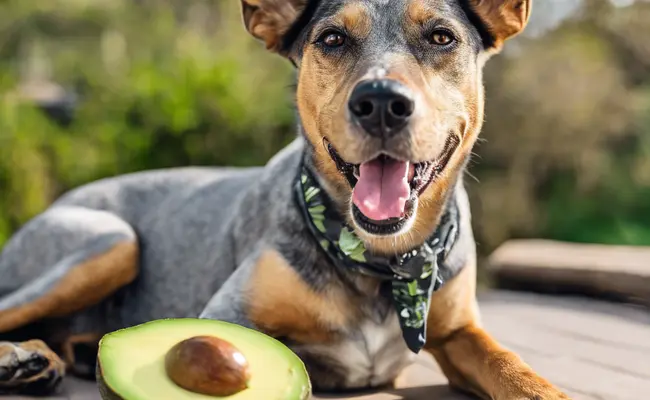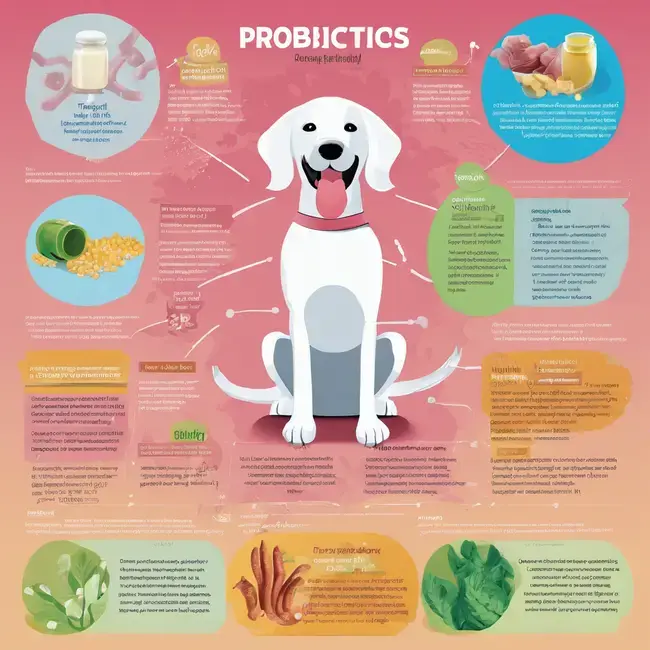Can Dogs Eat Avocado? Discover the Benefits and Risks

- Can Dogs Eat Avocado?
- Is Avocado Good for Dogs?
- How Much Avocado Can a Dog Eat?
- Avocado Benefits for Dogs
- Potential Risks of Avocado for Dogs
- Can Dogs Have Avocado Oil?
- Can Dogs Eat Avocado Seeds?
- Can Dogs Have Avocado Toast?
- Can Dogs Eat Avocado Pits?
- Can Dogs Eat Avocado Skin?
- Alternatives to Avocado for Dogs
- Conclusion: Is Avocado Safe For Dogs?
- FAQs
- Resources
This post may contain affiliate links, meaning I may earn a commission if you make a purchase, at no extra cost to you. I only recommend products I trust. Thank you for your support.
Avocado is a nutritious fruit that is widely enjoyed by humans, but can dogs eat avocado, and is avocado safe for dogs?
These questions are common among pet owners about avocado’s suitability for dog consumption, and it’s a topic of debate.
In this comprehensive article, we will explore the potential benefits and risks of feeding avocado to dogs, providing you with the information you need to make an informed decision about your dog’s diet.
Can Dogs Eat Avocado?
Yes, dogs can eat avocado in moderation. However, only the flesh of the avocado is safe for dogs to eat. The leaves, skin, and pit contain higher levels of persin and should be avoided.
“Growing up in Brazil, avocados were common in our backyards. They would fall to the ground, and our dogs would eat them, much like they did with mangoes, bananas, and other native fruits. I had never heard of a dog dying from eating an avocado, so I was really curious about why they are considered toxic here,” explains Cattai de Godoy, an associate professor in the Department of Animal Sciences at the University of Illinois.
“No, Avocado is not toxic to dogs. It is high in fat and can cause an upset stomach, but that is about it,” a dog veterinarian with 34 years of experience Dr. Paul Brazzell, replied to a worried client whose dog ate avocado toast with sriracha on top.

Is Avocado Good for Dogs?
Yes, avocado can be a nutritious addition to a dog’s diet, as it contains healthy fats, fiber, and a range of vitamins and minerals.
List of nutrients in avocado include:
- Healthy Fats: Avocados contain monounsaturated fats, which are beneficial for dogs’ skin and coat health.
- Fiber: Helps with digestion and maintaining a healthy gut.
- Vitamin A: Supports vision, immune function, and reproduction.
- Vitamin B6: Important for brain development and function.
- Vitamin C: An antioxidant that supports the immune system.
- Vitamin E: An antioxidant that helps protect cells from damage.
- Folate: Important for cell division and healthy tissue growth.
- Niacin (Vitamin B3): Supports skin health and energy metabolism.
- Potassium: Essential for muscle function and maintaining fluid balance.
- Magnesium: Important for enzyme function and energy production.
- Antioxidants: Avocados contain various antioxidants that help protect cells from oxidative damage.
However, the benefits of avocado for dogs should be weighed against the potential risks, which we will discuss in detail.
How Much Avocado Can a Dog Eat?
The amount of avocado a dog can safely consume depends on several factors, including the dog’s size, age, and overall health.
It’s essential to introduce avocado gradually and monitor your dog’s reaction to ensure they tolerate it well.
As a general guideline:
- Small dogs (under 20 pounds): 1-2 tablespoons of avocado flesh per day
- Medium dogs (20-50 pounds): 2-4 tablespoons of avocado flesh per day
- Large dogs (over 50 pounds): 4-6 tablespoons of avocado flesh per day
Avocado Benefits for Dogs
Avocado can provide several benefits for dogs when consumed in moderation:
- Healthy Fats: Avocado is rich in monounsaturated and polyunsaturated fats, which can help support a dog’s skin and coat health, as well as their overall cardiovascular function.
- Nutrient Rich: Avocados contain over 20 vitamins, minerals, antioxidants, fiber, proteins, and fatty acids, all of which are vital for the general health of dogs.
- Fiber: The fiber content in avocado can aid in digestion and promote gut health in dogs.
- Antioxidants: Avocado contains various antioxidants, including lutein and zeaxanthin, which can help support a dog’s immune system and reduce the risk of certain health issues.
- Amino Acids: Avocados contain essential amino acids that are the building blocks of protein, which are crucial for muscle repair, growth, and overall body function.
Potential Risks of Avocado for Dogs
While avocado can offer some benefits, there are also potential risks associated with feeding it to dogs:
- Persin Toxicity: Avocado contains a compound called persin, which can be toxic to dogs if consumed in large quantities and can cause vomiting, diarrhea, and even heart or lung damage in some cases.
- Choking Hazard: The avocado pit and skin can pose a choking hazard for dogs if they attempt to swallow them.
- Gastrointestinal Issues: Consuming too much avocado can lead to gastrointestinal problems, such as diarrhea and vomiting, due to the high-fat content.
- Weight Gain: Avocado is high in calories, so overfeeding can contribute to weight gain and obesity in dogs.
- Pancreatitis Risk: The high-fat content in avocados, while healthy in moderation, can contribute to pancreatitis in dogs if consumed in large quantities.
- Allergies: Some dogs may be allergic to avocados. Symptoms of an allergic reaction can include itching, swelling, and difficulty breathing.
Can Dogs Have Avocado Oil?
Avocado oil is not toxic to dogs, but it is high in fat and can trigger pancreatitis in susceptible dogs. Therefore, it’s safest to avoid feeding it to dogs altogether.
Can Dogs Eat Avocado Seeds?
No, dogs should not eat avocado seeds, as they contain high levels of persin, which can be toxic to dogs. Avocado seeds can also pose a choking hazard and should be kept away from your furry friend.

Can Dogs Have Avocado Toast?
No, avocado toast is generally not recommended for dogs, as it contains ingredients that can be harmful to them, such as bread, which can be difficult for dogs to digest, and potential seasonings or toppings that may be toxic.
Can Dogs Eat Avocado Pits?
No, dogs should not eat avocado pits, as they contain high levels of persin and can also pose a choking hazard. Avocado pits should be kept away from dogs at all times.
Can Dogs Eat Avocado Skin?
No, dogs should not eat avocado skin. The skin of the avocado also contains high levels of persin and should not be fed to dogs.
Avocado skin can be toxic and should be discarded safely, away from your pet’s reach.
Alternatives to Avocado for Dogs
If you’re looking for healthy, dog-friendly alternatives to avocado, consider the following options:
- Broccoli: A crunchy and nutrient-rich vegetable that can be a great addition to a dog’s diet.
- Bananas: A sweet and potassium-rich fruit that can be a tasty treat for dogs in moderation.
- Shrimp: A lean protein source that can provide various health benefits for dogs.
- Celery: A low-calorie, hydrating vegetable that can be a refreshing snack for dogs.
- Cantaloupe: A juicy, vitamin-packed fruit that can be a refreshing treat for dogs.
- Cauliflower: A crunchy and fiber-rich vegetable that can be a healthy addition to a dog’s diet.
- Olive Oil: A healthy fat that can be used in moderation to supplement a dog’s diet.
- Corn: A source of carbohydrates and fiber that can be a safe addition to a dog’s diet.
- Salmon: A lean protein source that can provide omega-3 fatty acids to support a dog’s health.
Conclusion: Is Avocado Safe For Dogs?
In conclusion, while avocado can provide some potential health benefits for dogs, it is essential to weigh the risks and feed it in moderation.
The avocado fruit, pit, leaves, and skin all contain persin, which can be toxic to dogs if consumed in large quantities.
Additionally, the high-fat content of avocado can lead to gastrointestinal issues and weight gain if not properly managed.
If you do choose to feed your dog avocado, it is crucial to introduce it gradually and monitor their reaction.
Stick to the recommended portion sizes based on your dog’s size, and avoid feeding them the pit, skin, or leaves.
As with any new food, it’s always a good idea to consult with your veterinarian before making changes to your dog’s diet.
Ultimately, while avocado for dogs can be a nutritious addition to a dog’s diet, many other healthy alternatives may be a safer and more appropriate choice.
By understanding the potential risks and benefits, you can make an informed decision about whether avocado is the right fit for your dog.
- What is chicken meal in dog food?
- 20 Christmas party buffet food ideas
- Why paleo diet is unhealthy?
- Is tuna good for dogs?
- Can dogs eat raw chicken?
- Can dogs eat acorns?
FAQs
Is Avocado Bad for Dogs?
Avocado is not necessarily bad for dogs BUT it can be toxic to dogs due to the presence of a compound called persin, which can cause vomiting, diarrhea, and even heart or lung damage in some cases.
It’s important to feed avocado to dogs in moderation and to avoid the pit, skin, and leaves, which contain higher concentrations of persin.
What Foods Are Toxic to Dogs?
Foods that are toxic to dogs include chocolate, onions, garlic, grapes, raisins, macadamia nuts, and xylitol (a common sweetener).
What Happens if My Dog Eats Avocado?
If a dog consumes a large amount of avocado, they may experience symptoms such as vomiting, diarrhea, lethargy, and difficulty breathing.
In severe cases, avocado consumption can lead to heart or lung damage.
If your dog has eaten avocado, it’s important to monitor them closely and contact your veterinarian if you notice any concerning symptoms.
Is Avocado Safe for Dogs?
Avocado can be safe for dogs when fed in moderation and with caution, and avoid feeding the pit, skin, and leaves to dogs, because they contain higher concentrations of the toxic compound persin.
What Animals Cannot Eat Avocados?
Avocado is toxic to several animals, including horses, rabbits, cattle, goats, and birds. The persin compound found in avocados can be harmful to a wide range of species, so it’s best to avoid feeding avocados to any pets or livestock.
Resources
- Nutritional and physicochemical implications of avocado for dogs.
- Is avocado good for dogs: Avocado meal for dogs.
Disclaimer: The information provided in this article about, “Can dogs eat avocado” or avocado for dogs is for educational purposes only and is not intended as veterinary advice.
Always consult with a qualified veterinarian before introducing new foods to your pets’ diet or if you have concerns about their health and safety.




